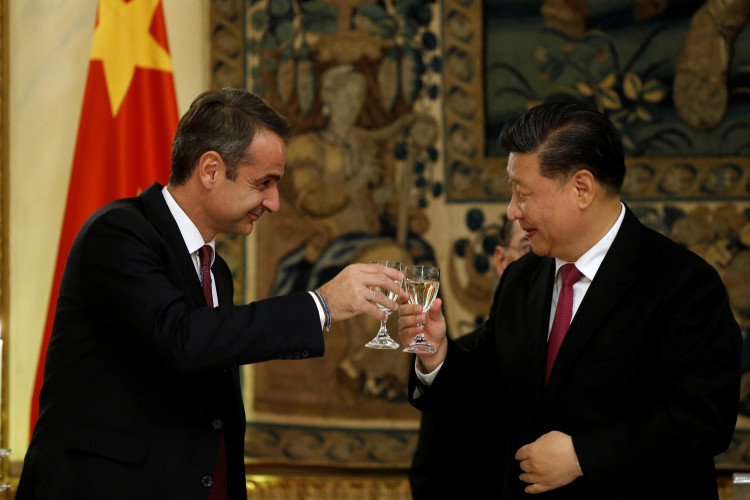From a strictly financial and political perspective, Greece's departure from its third bailout from the Eurozone in August last year is viewed by many as effective.
And of the approximately €290 billion that Greece received from the International Monetary Fund, European Commission and the European Central Bank, less than 12 percent was actually used for investment.
The remainder was used to support the spiraling national debt of Greece, and even then repayments were protected only up to 2022. Unemployment stands at 17 percent thanks to government spending cuts introduced from 2010-18 in exchange for these loans.
What a time for the Chinese president, Xi Jingping, to make his first official visit to Athens, intensifying a relationship between the two developing countries for more than a decade.
Greece was already a part of China's 17 + 1 initiative earlier this year, which seeks to strengthen collaboration between Beijing and 17 countries in Central and Eastern Europe and the Balkans.
The plan is part of China's One Belt One Road project to develop infrastructure and exchange in Eurasia and beyond, pledged by the Greeks as far back as 2009 - the first developed economy and a member of NATO to do so.
In the past couple of years, Greece has also unnerved its Western allies by opposing EU attempts to criticize China on topics such as human rights and sea rule.
Sixteen new bilateral agreements have been made to mark Xi Jinping's trip to Athens. Building on past Chinese ventures in Greek transportation, they will include industries as varied as schooling and farming.
That comes just two months after a similar trip to Italy by the Chinese president. This, too, saw the declaration of trade deals spanning multi-billion-euro markets. The Italians were also the first major Western force to endorse the One Belt One Ring initiative.
Unlike Greece, Italy is saddled with heavy deficits and bears the brunt of the current migration crisis in the Eurozone. For the previous three years, both nations have applied to the EU for pan-European stimulus projects, but were rejected outright by key eurozone members such as Germany, the Netherlands and Finland.
Greece and Italy are doing the fine balancing act of negotiating with China without weakening the EU's broader foreign trade agenda, but the EU and Americans are still dissatisfied. In addition, the EU is worried about China implementing external sovereignty for its new governance model.
The participation of Greece in China's 17 + 1 plan is also seen particularly significant by the West. Greece is the first of the five eurozone members to join - Slovenia, Estonia, Lithuania and Latvia are the others.
Membership was part of the broader strategy for Greece to introduce international trade agreements across new trade routes. The step seems to have rejuvenated an effort that has been limited to infrastructure upgrades and has been stagnant since 2016.
Although Greece first entered the 17+ 1 initiative, the fact that the new conservative government is ready to upgrade its strategic relationship with China indicates that the partnership will withstand political change in Athens.
Only a week after Prime Minister Kyriakos Mitsotakis visited Shanghai, Xi Jinping's trip came after China made Greece the 2019 China International Import Expo's official guest host.






